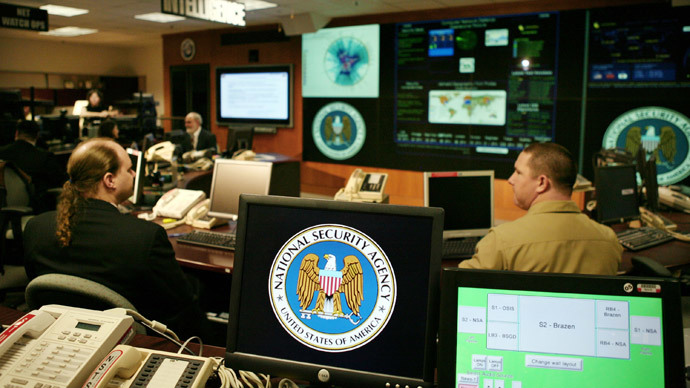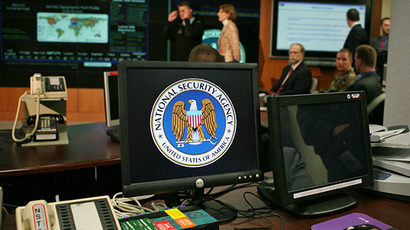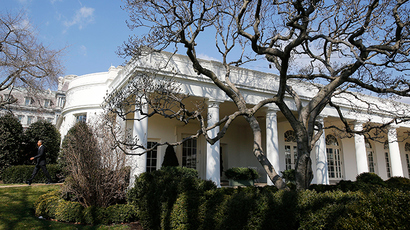Revealed: Phone company tried and failed to defy NSA orders

An unnamed phone company attempted in January to resist a National Security Agency request for customer data, but was later ordered to comply by the secretive Foreign Intelligence Surveillance Court, according to newly declassified documents.
In late January, the phone company – the name and information of which was redacted from released documents by the federal government – filed a petition with the FISC, which oversees surveillance requests, challenging an order from the NSA.
Observers believe it was the first NSA directive any phone company had attempted to resist. A federal judge wrote last year that no phone company had denied an NSA request in its phone metadata collection program, authorized under Section 215 of the US Patriot Act, the surveillance agency claims.
The telephony metadata gathered by the NSA includes phone numbers, call times, and other details about a call short of revealing the contents of the communications.
The company had based its protest on a December court ruling by Judge Richard Leon, of the US District Court for the District of Columbia. Leon said the NSA’s domestic phone metadata collection was likely unconstitutional.
“I believe that bulk telephone metadata collection and analysis almost certainly does violate a reasonable expectation of privacy,” Leon wrote.
“It’s one thing to say that police expect phone companies to occasionally provide information to law enforcement; it is quite another to suggest that our citizens expect all phone companies to operate what is effectively a joint intelligence-gathering operation with the government.”
With the NSA program’s legality in doubt, the company challenged the order while it continued to adhere to NSA demands while waiting for the FISC to rule.
On March 20, the FISC rejected the company’s motion and ordered it to comply with the NSA request.
FISC Judge Rosemary Collyer ridiculed Judge Leon’s rationale, labeling it “unpersuasive.” She said people have no Fourth Amendment right that protects their metadata when they willingly share it with phone companies.
"The aggregate scope of the collection and overall size of NSA's database are immaterial in assessing whether any person's reasonable expectation of privacy has been violated," she wrote, citing the 1979 Supreme Court case Smith v. Maryland.
She also said the FISC has adequate oversight of how the NSA uses the metadata once it’s confiscated.
The domestic bulk telephony metadata program has been a prime source of controversy since it was the subject of the first published leak that came from the cache of classified documents supplied to journalists by former NSA contractor Edward Snowden.
After Leon’s decision, the court case – Klayman v. Obama – challenging the metadata program now stands at the federal appellate level. Earlier this month, the US Supreme Court denied a petition by the plaintiff in the case that requested the high court take the case before lower courts had ruled.
President Barack Obama has called on Congress to pass legislation that takes the phone metadata collection away from the NSA. Under the White House proposal made public in March, the US government would no longer collect these records in bulk, and instead they would remain in the possession of the telecommunication companies where they originate from for as long as those telecoms currently allow.














